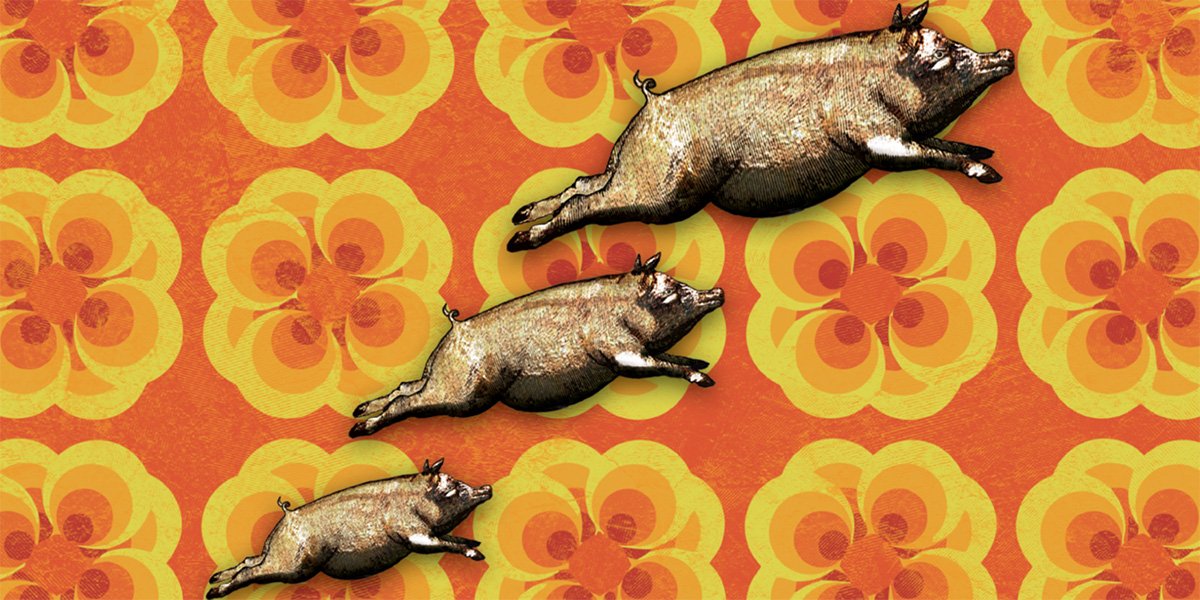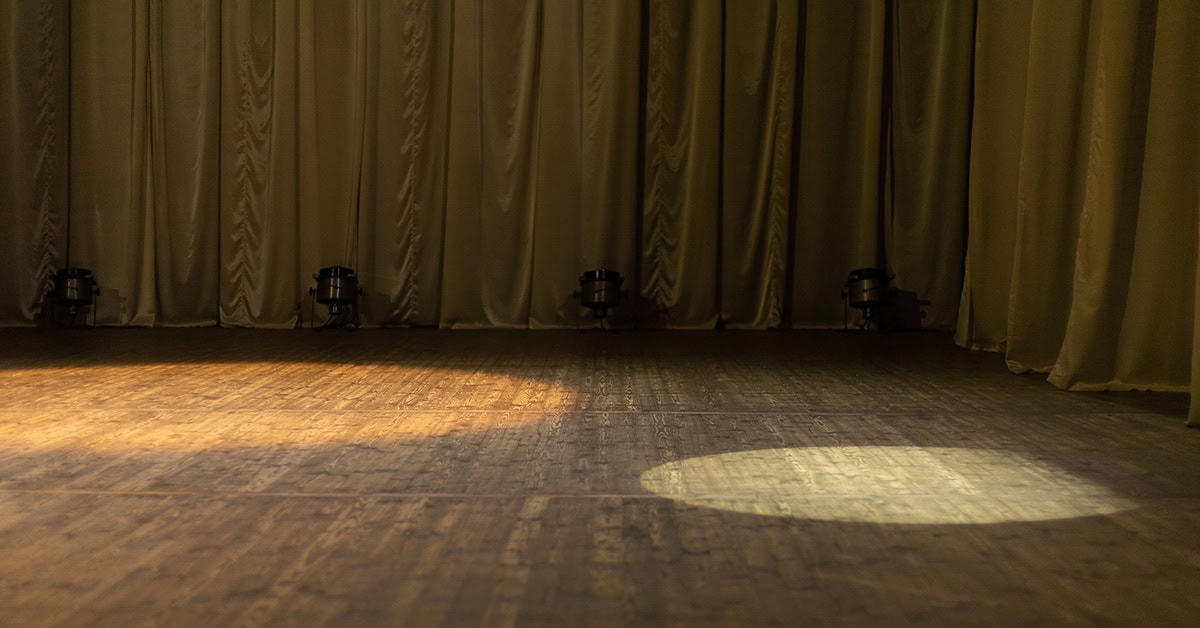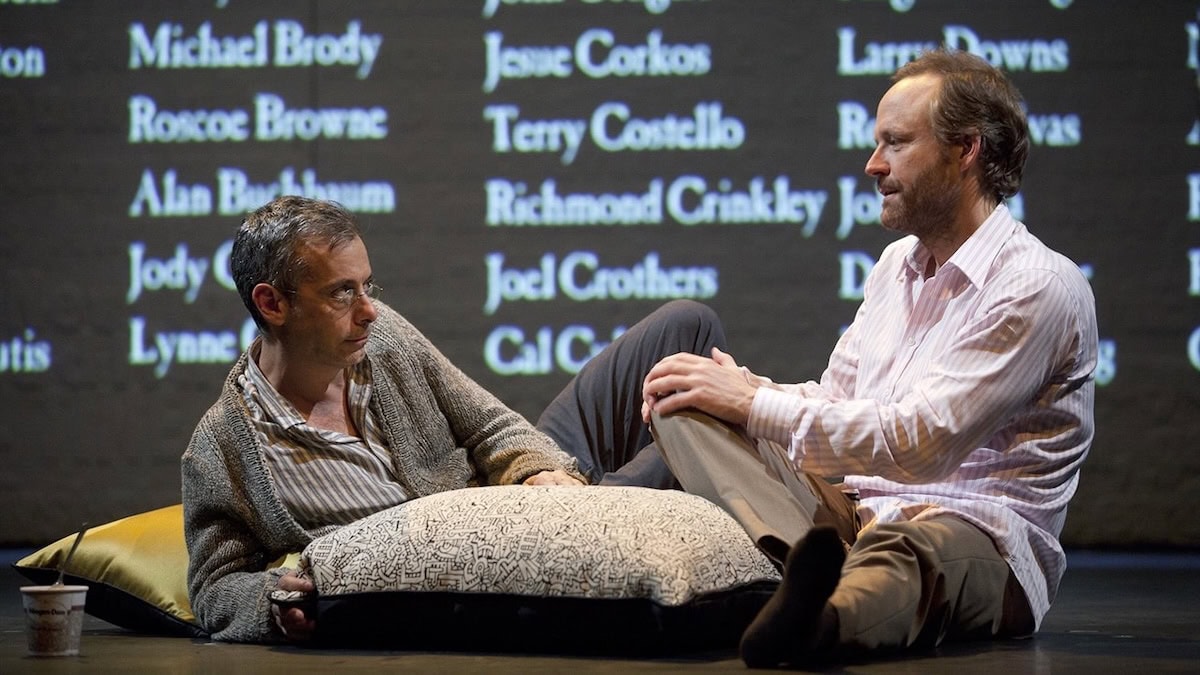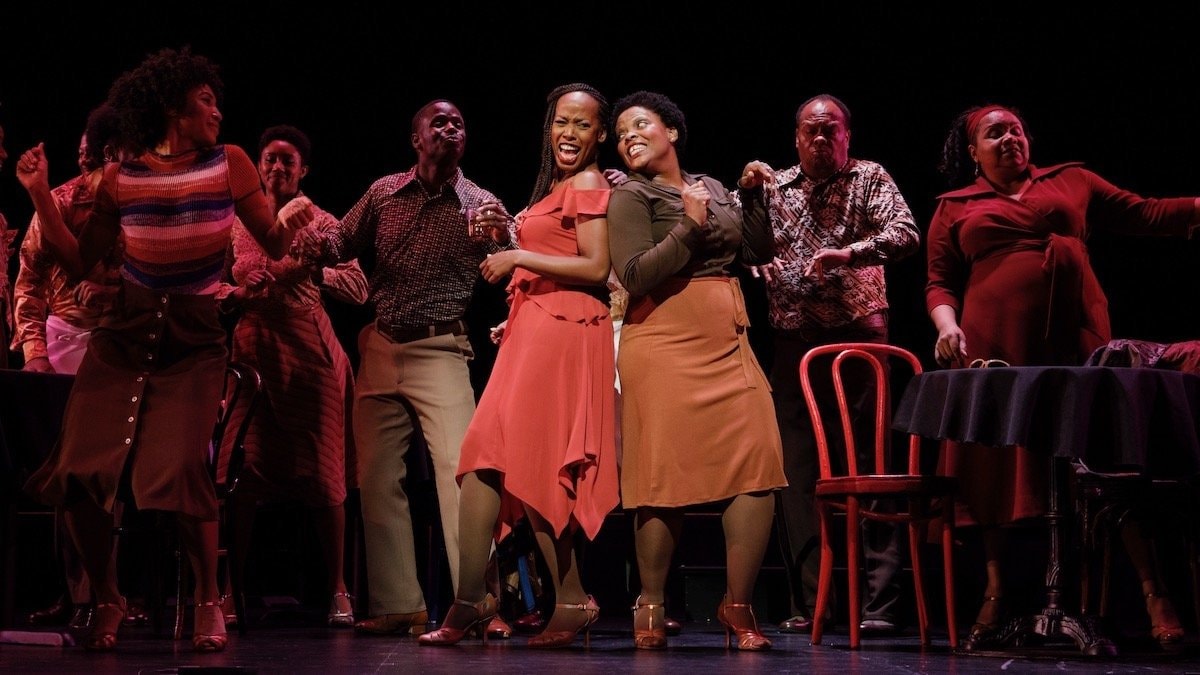
The Boy Who Kicked Pigs (UK) is the story of Robert Caligari, a troublesome young boy whose tricky behaviour becomes exponentially worse before karma hands him his comeuppance.
Darkly comic and larger than life, Tom Baker’s unique children’s story has been adapted for the stage by Kill The Beast, a brilliant five-person group of creative minds, and we’ve discussed their experience of adding some theatrical magic to this unique book.
What was it about Tom Baker’s The Boy Who Kicked Pigs that attracted you?
Clem, our director, first read the book when he was about 12 years old and immediately loved the dark, unpatronising nature of it. It’s such a silly title that most parents – like his own – were probably buying it for their kids with no idea of the sheer terror and barbarism that was lurking within the pages. It felt like a nasty, neglected sibling to a Roald Dahl book, and it’s always quite fun following a horrible person as they pelt towards their inevitable doom.
It was also just really funny and daft, and was accompanied by the scratchy, pointy illustrations of David Roberts, who perfectly seems to capture both dull suburbia and wonky Gothic wonderlands. These drawings, along with the story, really reminded us of long, boring afternoons at my grandparents’ house where you wished something, anything, ideally something anarchic, would kick off.
The story of young Robert’s troublesome naughtiness and dislike of much of the world around him, though a comedy, is also quite dark. What measures did you take to keep the comedic elements of the story at the forefront of the play, and how difficult was it to strike the right balance between the lighter and darker moments?
The darker elements found their way in naturally. There’s a lot of them in the book and the tone we adopted for the adaptation was grimy and twisted, so that platform was always there. With that background it meant we could be really silly with the characters and the comedy. The more cartoonish they became, the more grotesque it seemed, as these bizarre characters seemed totally detached from the horrible backdrop to their lives. Because we could be so relentlessly nonsensical in the characters’ comedy, there was never a chance for the lighter elements to disappear.
Which moment of the book did you have the most fun with when recreating it for the stage?
The book features several amazing, slightly out-of-this-world moments, and it says a lot about the play that the disembowelling of a live shark wasn’t the strangest or most challenging moment to recreate on stage.
We were initially daunted by the idea of staging a multiple car motorway pile-up – complete with a truckload of burning chickens, exploding wine, and a minibus of terrified vicars fleeing for their lives – with nothing but our horrible bodies and four rickety stools. But once we got in a rehearsal room and sank our teeth into it, we had the best time doing what we do best – putting together a breakneck, cinematic sequence full of weird and wonderful characters dying under appalling (but hilarious) circumstances!
The Boy Who Kicked Pigs is your first foray into working on adaptations. Are there any other stories that you would love to see adapted for the stage?
There are so many! We want more dark, twisted kids’ stories making it onto stage – something like The Whitby Witches, which we’ve always thought would be brilliant live.
Also there’s room for more amazing live horror, particularly adapting the classics. Taking over a floor of a building and staging an immersive Rosemary’s Baby, for instance, is something we’d love to do.
Is there any advice you’d like to share for those wanting to stage this play themselves?
Don’t be afraid to look weird, sound bizarre or be grotesque. The play works better the more twisted it gets. Be inventive – it is remarkable how much you can convey using a few multi-use props and your bodies. Oh, and have fun. That’s the main one. Just. Have. Fun.
Can you give us a hint about what you’re currently working on, and what it’s about?
We have a few things in development that sadly we’re not allowed to discuss under pain of VERY embarrassing blackmail, but in the meantime we’re plotting the second series of Eglantine Whitechapel: Supernatural Detective, Ollie and Clem are making the world scared via their new interactive online games Plymouth Point and The Mermaid’s Tongue, Tash and Dave are sending you to nightmarish sleep with BBC series The Sink, and Zoe, Tash and Dave have launched a new online musical project you can join up to be part of, called The Marathon Project.
PLENTY of Beastly goodness to get your disgusting fangs into.
To delight in this brilliant story, purchase a copy of the play today, or learn a little more about licensing the show.

Recommended Shows for Drama Festivals

The Truth Behind… The Normal Heart

